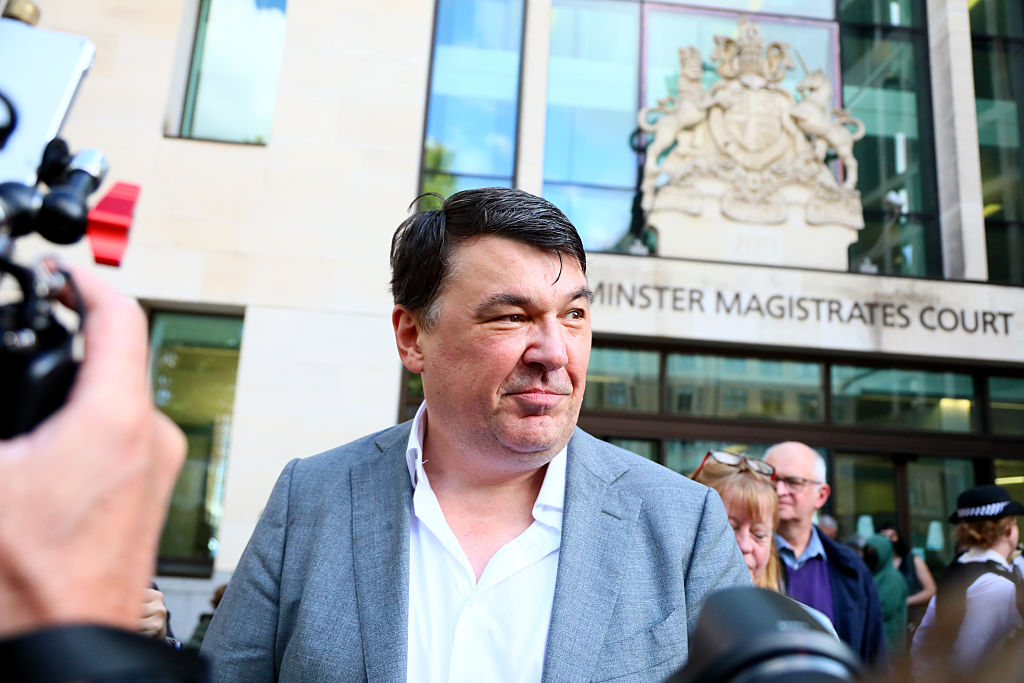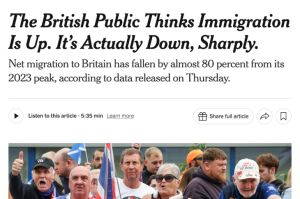Where do you strike the balance between expression and security? It is a question Americans don’t need to ask. Our Constitution is plain and unambiguous about our fundamental rights to say what we want, write what we like, to gather in protest and – sweet relief – to mock our government.
Not everyone is so lucky. Not even our friends. “It doesn’t give me any great joy to be sitting in America and describing the really awful, authoritarian situation that we have now sunk into,” Britain’s Nigel Farage told the House Judiciary Committee yesterday afternoon, as he detailed the speech crackdown being carried out in the UK. “At what point did we become North Korea?”
Ever the controversialist, the Reform leader – Britain’s new right-wing party – is always thinking about the headlines. And his claims are garnering the attention he seeks. But is it true? Is the UK indistinguishable from North Korea? Obviously, no. Is the UK upholding the country’s historical and noble commitment to free speech? Tragically, also no.
It feels unsettling to say so. Having worked in the UK for the past decade, I knew that reports back in the States about Britain’s skyrocketing crime rates or “no go” zones were overblown. But in the case of speech, there has been a noticeable shift towards intolerance, with reinforcing legislation. Updates to the Public Order Act in 2023 have radically undermined the security Britons have traditionally had to speak freely and to protest. What’s followed has been a series of baffling, and dangerous, outcomes.
Just this week, writer and comedian Graham Linehan landed at Heathrow airport outside of London, only to be greeted by five armed police officers at the plane’s door. His detention was so aggressive, he ended up in hospital for dangerously high blood pressure, where he wrote an account of the arrest. His crime? Three tweets from earlier in the year, making a series of controversial comments about trans men and the pro-trans lobby.
There is a good chance Linehan will avoid jail time, now that the UK’s Prime Minister Keir Starmer has intervened to ask the police to stop policing tweets and to start prioritizing violent crime. The Metropolitan Police chief shot back, asking the government to clarify the laws that police are supposed to enforce the Public Order Act which currently has police officers reaching for handcuffs when someone takes to social media or hauling civilians into jail cells for silently praying near abortion clinics (quite literally “thought crime”).
The condition of Linehan’s bail is that he “cannot go on Twitter.” Heaven forbid he speaks some more. Speech is the enemy, it seems, and it must be suppressed.
Farage’s claim on the Hill that Americans may not be safe traveling to Britain is an exaggeration. But it is an increasingly credible hypothetical. Linehan is not a British citizen – he is an Irishman who was traveling from Arizona and it was staff based on American soil who, according to Linehan’s account, changed his seat before he boarded the plane. That feels uncomfortably close to home.
Meanwhile, Lucy Connolly didn’t avoid jail. The 41-year-old mother was sentenced last year to 31 months in prison for a tweet, quickly deleted, she sent out around the Southport riots, triggered in the north of England when three little girls were stabbed and killed by a British teenager (10 more were injured) during a dance class.
Connolly’s comments were horrendous, suggesting that the lives of asylum seekers don’t matter (there was speculation at the time the murders had been carried out by an immigrant). As Farage said yesterday, her comments were “intemperate” and “wrong.” It was hate speech – which is to say, it was also free speech.
Connolly should have never seen a jail cell for her comments, which has only made her a martyr for the very opinions the government is trying to silence. She is now considering a run in the next election against the current Home Secretary, who oversees the policing and immigration policy. Connolly may even have a decent chance of winning: her status as a “political prisoner” means her inhumane views on immigration are now, largely, overlooked.
These kinds of unintended consequences inevitably follow when a country starts to chip away at the most fundamental, and stabilizing, rights. If you believe the polls, Britons are now seriously considering their own populist overhaul, as voters reject both Conservative governments, which started the speech crackdowns, and the current Labour government, which has carried it on.
Farage may have been labeled “fringe” yesterday by Congressman Jamie Raskin, but his Reform party is surging ahead in the polls. There is a real possibility, unthinkable a year or two ago, that Farage could be in a position to form the next government in Britain. If this happens, it will be his absolutist attitude towards free speech that helped propel him into Downing Street.
In America, the political targets are the elite: the high-level politicians and household names who have got on the wrong side of the current administration. In the UK, the target is the little guy and gal: your grandpa or aunt who feels compelled to share an ugly opinion with their 135 Facebook or X followers, because they’re mad as hell and can’t take it anymore.
Both are forms of lawfare and neither have any place in a free society.


























Leave a Reply